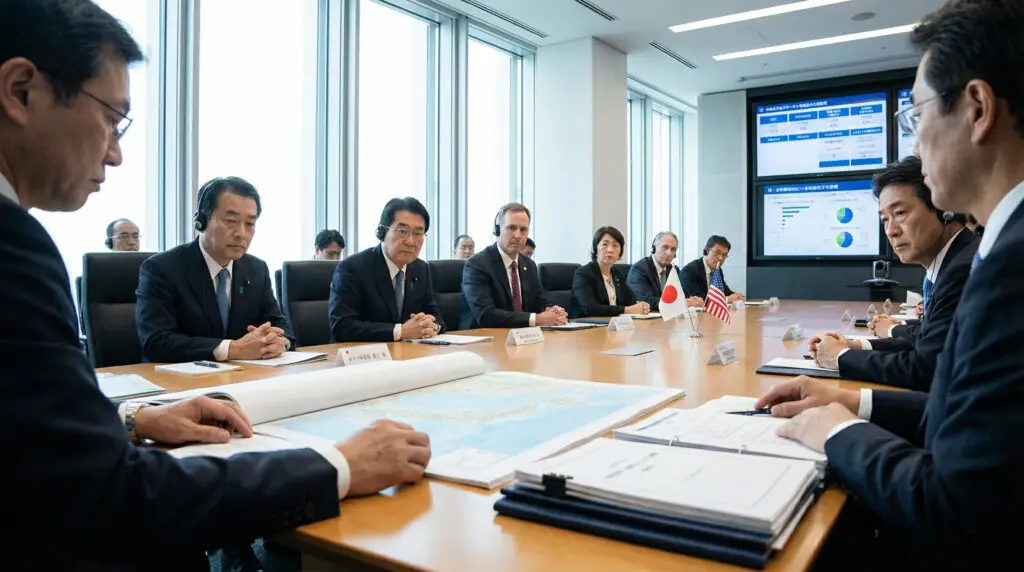In the race to become the Middle East’s next tech capital, Riyadh is pulling ahead. Fueled by Saudi Arabia’s ambitious Vision 2030 reforms, cutting-edge infrastructure, and generous government incentives, the capital city is positioning itself as the leading launchpad for startups looking to conquer the MENA region and beyond.
The numbers speak volumes. According to Mordor Intelligence, the Saudi ICT (information and communication technology) market is expected to grow from $54.90 billion in 2025 to $82.51 billion by 2030, reflecting a compound annual growth rate of 8.49 percent. This surge underscores the kingdom’s transformation into a regional innovation hub, driven by both state vision and private sector dynamism.
Vision 2030 and the Rise of Innovation Zones
Central to Riyadh’s appeal is the Kingdom’s Vision 2030 economic diversification plan, which places technology at the heart of its national development. Flagship projects like NEOM, a $500 billion smart city built on AI and clean energy and Riyadh Tech Valley, a hub for emerging fields like robotics and the Internet of Things, signal the government’s long-term commitment to innovation.
Complementing these projects are initiatives like the Saudi Unicorns Programme and Tech Growth Financing, which provide critical capital and mentorship for scaling startups.
“Saudi Arabia’s advanced digital infrastructure has significantly accelerated startup growth,” said Emmanuel Durou, technology, media, and telecommunications leader at Deloitte Middle East. “It supports rapid innovation and scaling up.” He pointed to the fact that 14 percent of Saudi broadband users enjoy speeds over 1 Gbps, far ahead of the UK’s 4 percent.
A Pipeline of Tech Talent
Equally crucial is the kingdom’s strategic investment in education and human capital. “As many as 86 percent of Saudi universities now provide undergraduate programmes in AI, 56 percent offer master’s degrees, and 9 percent have doctoral tracks,” Durou explained.
Institutions like King Abdullah University of Science and Technology are producing a new generation of engineers and entrepreneurs ready to meet the demands of high-growth tech startups.
A Business-Friendly Ecosystem for Innovation
Durou also credited the kingdom’s supportive business climate, including venture capital channels, robust incubators like Garage 46 and Impact 43, and policy frameworks that ease startup formation.
Saudi Arabia’s consumers are embracing new technologies faster than many global counterparts. Deloitte’s survey shows 76 percent awareness of generative AI, with 20 percent of respondents using it daily and 32 percent weekly, levels that outpace the UK.
When comparing Riyadh to Dubai, Durou noted, “Saudi Vision 2030 has significantly streamlined regulatory processes, reducing time-to-market and accelerating development timelines.” He also highlighted lower customer acquisition costs in Riyadh, thanks to state-driven digital adoption campaigns.
Legal Structure and Founder Confidence
Jasem Al-Anizy, a corporate finance partner at Addleshaw Goddard KSA, discussed the evolving legal landscape. While startups previously held their intellectual property offshore, confidence is growing in local company structures like the Simplified Closed Joint Stock Company.
Riyadh’s 2018 Bankruptcy Law also provides distressed startups with a path to recovery rather than liquidation, making it easier for founders to restructure and continue operating. Al-Anizy emphasised that mediation and arbitration are gaining popularity as trusted mechanisms for resolving commercial disputes.
He also advised that founders, especially foreign entrepreneurs, must be crystal clear about equity terms, vesting schedules, and convertible instruments like SAFEs and KISS notes. “Having an unclear picture of your share cap table is an easily avoidable way to lose investor confidence,” he warned.
A Magnet for Global Corporations
Riyadh’s rise is not just about local startups. Since 2021, more than 600 foreign companies have relocated their MENA headquarters to the Saudi capital, spurred by incentives from the Ministry of Investment and the Royal Commission for Riyadh City.
These benefits include 30 years of tax relief, 0 percent corporate and withholding taxes, and full foreign ownership in key sectors. The city’s position at the intersection of Asia, Africa, and Europe, combined with modern infrastructure and a 36 million-strong population, offers a powerful draw for global expansion.
Real Results and Rising Stars
Saudi Arabia’s ascent is more than policy; it’s already producing success stories. Tamara, the kingdom’s first fintech unicorn, and Salla, an e-commerce platform empowering SMEs, show the ecosystem’s maturity. International events like the LEAP Tech Conference and Riyadh Season continue to attract top investors and talent to the city.
With a rapidly growing economy, youthful population, and government-backed drive to become a global tech player, Riyadh is no longer an emerging contender; it’s a launching pad of choice for the region’s most ambitious startups.























